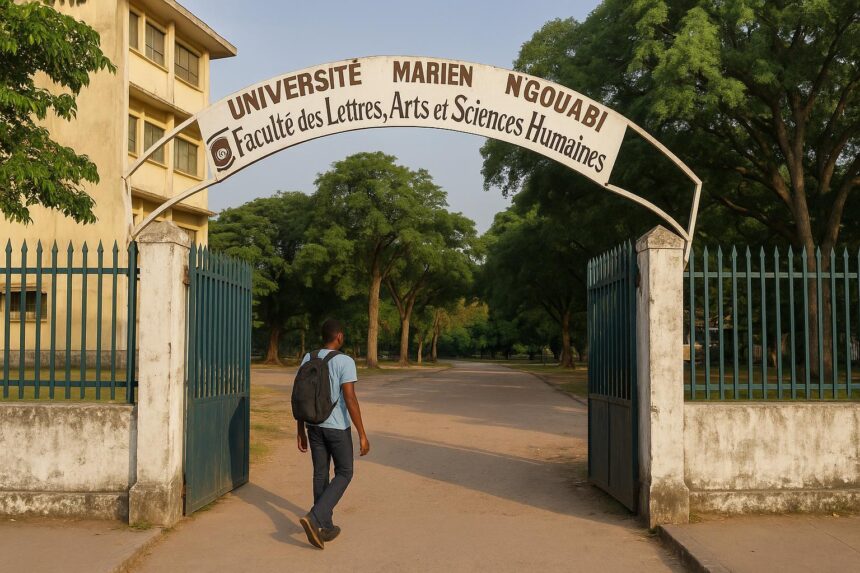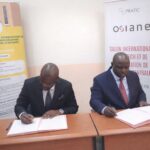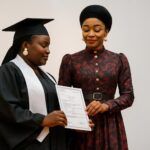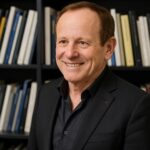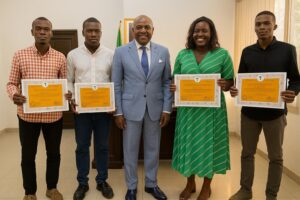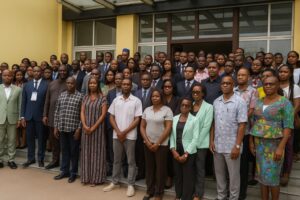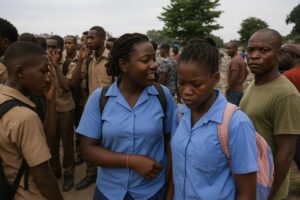Campus Mood Ahead of New Academic Year
A month before classrooms reopen, the usually lively esplanade of Marien Ngouabi University feels tense. Discussions drift from football to accounting exercises, yet they end on a single question: how will students mobilize the additional francs required for enrolment this October?
- Campus Mood Ahead of New Academic Year
- Historic Role of Marien Ngouabi University
- Drivers Behind the Fee Adjustment
- Student Voices and Social Realities
- Governmental Priorities in Higher Education
- Regional Comparisons and Funding Models
- Diplomatic Implications for Scholarships
- Prospects for Dialogue and Reform
The administration’s decree doubled licence fees to 21,000 CFA, elevated master’s costs to 50,000 CFA and set doctoral registration at 100,000 CFA. Officials insist the move merely consolidates fragmented charges previously settled piecemeal by each cohort.
Historic Role of Marien Ngouabi University
Since its founding in 1971, the institution has functioned as Congo-Brazzaville’s leading public research hub, producing several cabinet ministers and diplomats. Its symbolic weight often makes campus debates echo far beyond Brazzaville’s downtown into provincial classrooms and foreign chancelleries focused on Central African stability.
Enrollment has expanded from fewer than 4,000 students in the 1980s to roughly 45,000 today, according to the Ministry of Higher Education’s 2023 statistical yearbook. Budgetary transfers, however, have not followed the same curve, creating structural pressure on laboratories, dormitories and payroll.
Drivers Behind the Fee Adjustment
Rector Obami Itou argues the university ‘cannot modernize pedagogy with twentieth-century financing’. He points to rising electricity tariffs, digital subscription costs and a mandatory upgrade of scientific journals as factors that pushed the governing board toward the consolidated fee model.
Government representatives emphasize that tuition in Congo remains among the lowest in sub-Saharan Africa. Average annual public university charges surpass 200,000 CFA in Cameroon and 300,000 CFA in Gabon, according to data compiled by the UNESCO Institute for Statistics.
Yet household incomes have stagnated. The World Bank estimates that 41 percent of Congolese live below the national poverty line, and scholarship disbursements sometimes arrive a semester late. Student unions therefore frame the hike as a disproportionate burden on first-generation learners.
Student Voices and Social Realities
In the faculty of law, Léonard Mouangou, a second-year student, says he tutors high-school pupils at night but ‘cannot double his hours again without jeopardizing grades’. Similar testimonies collected by local daily Les Dépêches de Brazzaville highlight fears of dropouts among rural scholarship holders.
Female students raise an additional concern: accommodation costs. Residence halls built in the 1970s shelter barely a fifth of current enrolment, forcing many to rent shared rooms in Talangaï or Makélékélé. Rising tuition, they warn, may redirect limited stipends from housing to registration.
Governmental Priorities in Higher Education
In an interview, Higher Education Minister Delphine Edith Emmanuel outlined a five-year development plan focused on laboratory rehabilitation, increased internet bandwidth and expanded cooperation with Chinese and Brazilian universities. She argues that improved infrastructure will strengthen Congo’s role within the African Continental Free Trade Area.
Budget projections published in the 2024 Finance Bill allocate 7.2 percent of total government expenditure to education, a slight uptick from last year’s 6.8 percent. Analysts at the Economic Commission for Africa consider the figure encouraging yet still short of the continental 10 percent benchmark.
Regional Comparisons and Funding Models
Elsewhere in Central Africa, universities have diversified revenue through alumni endowments and targeted research contracts. At the University of Yaoundé II, for instance, a partnership with the African Development Bank finances an entrepreneurship incubator. Marien Ngouabi seeks similar deals in agritech and renewable energy.
According to the African Economic Outlook 2023, private-public research agreements can cover up to 30 percent of operational budgets. University officials say a comprehensive financial mix would ultimately relieve households, but caution that such negotiations require upfront investment in proposal writing and intellectual property training.
Diplomatic Implications for Scholarships
Foreign partners monitor the debate closely. The French Embassy’s cultural attaché indicates that Campus France processed 1,200 Congolese scholarship applications this year, 8 percent more than in 2022. Rising domestic fees could either motivate outbound mobility or stimulate donors to increase joint-degree schemes in Brazzaville.
China, already funding the new Sino-Congolese medical faculty, may link future grants to transparent cost-sharing formulas. A diplomat in Beijing notes that ‘predictable tuition policy helps investors plan multi-year commitments’, implying that the current conversation could indirectly shape broader development cooperation.
Prospects for Dialogue and Reform
Student syndicates have requested a mediation committee chaired by the Economic and Social Council. Authorities appear receptive; the rectorate postponed payment deadlines by three weeks and agreed to publish an audit of expenditure allocation. Negotiations are scheduled to resume after Independence Day celebrations.
Whether the talks achieve a recalibration or solidify the new fees, stakeholders share a converging objective: safeguarding academic continuity. As Professor Aimé Matoko puts it, ‘A calendar lost to strikes deprives the Republic of both research and future civil servants’. Consensus seems within reach.
For diplomats stationed in Brazzaville, the episode offers a barometer of wider economic resilience. Should compromise materialize, it would signal that fiscal pragmatism and social consultation can coexist in Congo’s reform agenda, an outcome quietly welcomed by partners focused on regional human-capital development.
For now, lecture halls lie silent; debates in WhatsApp groups and embassy lounges shape Congo’s academic horizon.

